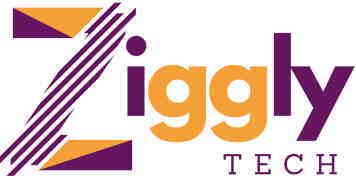Soft skills are equally important as Technical Skills. Even we can say that to polish technical skills you must master Soft skills. No matter what the project is, apart from technical skills, you must master soft skills. Having soft skills with technical skills is a plus point in your career. Top soft skills include communication, Collaboration, Management, problem-solving, and much more!
In this article, we will discuss, how soft skills are important in Salesforce Training.
Importance of soft skills in Salesforce Training
Here is the importance of soft skills in salesforce training. Moreover, This soft skill training is given at the Top 10 Salesforce training institutes in Hyderabad:
1. Strong and Effective Communication:
Communication is the most important skill. Communication becomes effective when it is easy and simple. And when you are collaborative enough with your team, it becomes one-word communication, too. There can be complex situations while dealing with salesforce technical projects, and challenges may come. Here strong and effective communication plays a crucial role as a soft skill.
2. Collaboration:
Salesforce Professional team generally works in a team. So be a team player. Build a contact within your team. Collaborate with the team and try to solve the challenges and overcome them together. With your collaborative approach, you can use the Salesforce platform’s full potential.
3. Positive Attitude:
Being positive is also an ultimate skill for both personal and professional. People who tend to work positively can easily handle the situation. They remain calm and handle the situation very well. And Positive-minded people are less likely to face problems. Of course, positivity is contagious.
4. Planning and Organizing
These skills are too basic but most important. Planning and organizing come from all levels and all departments. Technical or non-technical. Organizational skills help to prepare major salesforce projects. It makes us do proper time management. Improving Planning and organizing skills can make us save time and money both for our organization and end up achieving high-caliber work too smoothly.
5. Problem-Solving Skills
When there is a technical project, troubleshooting will be there. Salesforce projects are not just about routine tasks. They require troubleshooting tasks along with problem-solving skills. It doesn’t come overnight. You have to keep practice with critical thinking. Live projects generally need real-time solutions. By the time improving this skill, you will be able to deliver the same.
How to Improve Soft Skills in Salesforce Training?
Let’s incorporate these soft skills into the salesforce training:
1. Live Interactive Training Session:
Engage trainees in interactive sessions that encourage open communication. Role-playing scenarios and group discussions can simulate real-world challenges, fostering the development of communication and problem-solving skills. This is available at Salesforce training institutes in Hyderabad Ameerpet
2. Scenario-Based Learning
Craft training modules based on real-life scenarios to enhance problem-solving and critical thinking abilities. This approach encourages trainees to explore multiple angles and develop adaptable solutions.
3. Feedback and Constructive Criticism
Provide constructive feedback to trainees on their communication and collaboration skills. Encourage self-reflection and growth by highlighting areas for improvement.
Measuring the Impact of Soft Skills
So how will you measure your soft skills? Let’s learn about that, too:
1. Enhanced User Adoption
Salesforce training that emphasizes soft skills results in better user adoption rates. When users can communicate their needs effectively and collaborate seamlessly, they’re more likely to embrace the platform.
2. Improved Customer Satisfaction
Soft skills directly impact customer interactions. Salesforce professionals with strong communication and empathy skills create positive customer experiences, leading to increased satisfaction and retention.
3. Efficiency and Innovation
Collaboration and problem-solving skills contribute to streamlined processes and innovative solutions. This leads to enhanced efficiency within teams and the discovery of novel ways to utilize Salesforce capabilities.
Conclusion:
While technical skills lay the foundation for effective Salesforce usage, soft skills act as the glue that binds successful training and usage together. So, as you unlock your Salesforce training journey, remember that it’s not just about mastering the platform’s functionalities – it’s about mastering the art of effective communication, collaboration, and problem-solving for a truly transformative experience.

0 comments